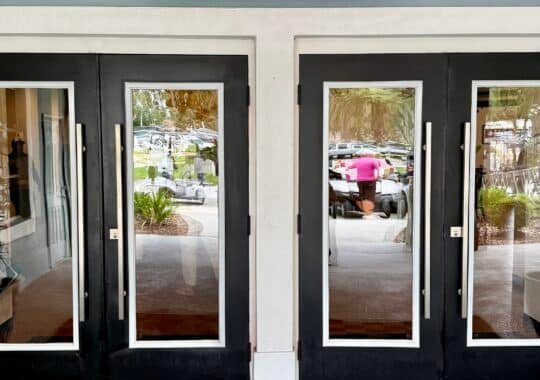|
Getting your Trinity Audio player ready...
|
Online casino activity, it seems, is steadily nudging global travel in new directions. Mobile gaming is seeing a real spike—some would call it a surge—helped along by streaming tech that just keeps getting better each year. According to the American Gaming Association, something like 85% of U.S. adults feel okay about gambling these days, and online gaming seems to be enjoying even greater curiosity.
Maybe it’s not quite a revolution, but the shifts are noticeable: as travelers rethink their priorities, destinations and hotels are racing to keep up—sometimes just barely catching the wave. More folks are seeking out places that make gaming (both digital and traditional) simple and accessible. Hotels, meanwhile, are figuring out how to cater to this newer crowd with a balance of anticipation and a bit of trial and error.

Impact of online casino trends on travel planning
It’s interesting—travel plans appear to be mapping onto digital gaming habits more and more. The online casino sector intersects with travel as a new form of entertainment tourism. Globally, destinations are adapting—regions now package holidays with both digital and physical gaming options. According to research by Muddy River News, 68% of surveyed casino tourists consider gaming facilities when booking travel. Locations are marketing themselves by hosting online live tournament finals, developing integrated resorts, and offering experiences appealing to a mix of gamers and non-gamers.
These days, just about everyone seems to have a smartphone glued to their hand, so those mobile-first casino apps travel right along with the user. For some, a quick round of gaming fills downtime—waiting at the airport, lounging after dinner, or during a break poolside. You’ll see resorts taking notice, designing hotel setups that allow for gaming practically anywhere, not just in dark corners of casinos. The ripple effects? Some say it’s beginning to change not only how long guests stay, but also what they spend, and how likely they are to come back again. Oddly, things like high-speed Wi-Fi and interactive lounges feel almost mandatory now. It’s less about a “niche” and more about what grabs people’s attention—and keeps it.
Technology-driven experiences and personalization
Tech innovation in online casino platforms does not stay confined to the virtual world. On the ground—or maybe more accurately, in the hotel lobby—travel operators are starting to notice the shift too; guests arrive with higher expectations, almost assuming entertainment will be immersive and available on demand. If you look at data from Esports.gg, there’s something of a consensus: features like VR, AR, and snappy live dealer connections are pretty much par for the course for gaming-focused travelers. Hotels, not wanting to disappoint, are installing seriously fast Wi-Fi, launching mobile services that do more than book dinner reservations, and experimenting with these so-called “hybrid reality” spaces where the virtual and tangible almost blur together.
Personalization, by now, is less a buzzword and more a reality. AI-driven casino apps comb through user behavior and start nudging personalized suggestions—whether that’s a particular hotel, a show you might care about, or some new deal you hadn’t spotted. Hotels are wading in, too, with loyalty programs that tie your room upgrade to casino credits or exclusive access. The line between classic hospitality and pure entertainment? It’s growing fuzzier each year, if not vanishing entirely. At some point, it’s tricky to know when you’ve stopped “traveling” and started “playing.”
Diversification and experiential appeal in hospitality
Hotels connected with casinos, lately, are shifting their focus outside the game floor. Exclusive eateries, boutique shops, wellness spas—these often loom just as large as the high-stakes tables. Traveldudes reports that for a growing percentage of guests at integrated resorts, non-gaming amenities are actually the main reason they come at all. So, the challenge is broadening—venues now juggle everyone from families and the casually curious, to the serious card-slingers.
But it’s not just about ticking boxes for services. Experience seems to be the new currency: unique shows, immersive tech installations, even giving guests a peek behind the curtain at how things run. Much of this is being driven by the same data-driven, personal-touch philosophy you see in online casino marketing, except now it’s bleeding onto the hotel floor. This can lead to anything from tailored event invitations to unexpected VIP perks, depending who you are and what you like. Hospitality, it could be said, is morphing into something closer to an experience hub—with tech quietly holding the threads together.
Social gaming and the rise of community events
It’s probably not surprising anymore—online casinos have started to change how people plan group trips, too. Suddenly, multiplayer modes and online tournaments are giving way to actual get-togethers. Muddy River News puts it at about 37%: that’s how many frequent online gamers say their friendships (and tournaments) play a part in where they vacation. So, places now host gaming festival weeks or hybrid events, attracting those who want to meet their digital friends in the “real world,” whatever that is nowadays.
Hotels pick up on this, rolling out packages for group gaming and carving out spaces just for tournaments or meetups. The focus is shifting from solitary entertainment to joint experience—travelers look for venues where friendships made online translate into collaborative adventures. What you end up with is tourism that feels less about ticking off landmarks, more about building communities—digital and otherwise.
Responsible gambling as a new standard
All of this rapid integration does raise new questions around healthy gaming habits. As online casino activities nestle into more travel packages, calls for responsible play are, not surprisingly, getting louder. You’ll find more venues introducing support hotlines, self-exclusion features, or pop-up reminders about time and limits. These days, educational material about responsible play sits right next to the glitzy promotions in most resorts.
Industry partnerships with advocacy groups are, if not widespread, at least becoming a mark of credibility. Both travelers and hosts—it’s fair to say—have to navigate this together. With the sheer convenience of online gaming, there’s probably never been a greater need for clear, common-sense boundaries that look out for everyone while letting the industry try new things.



